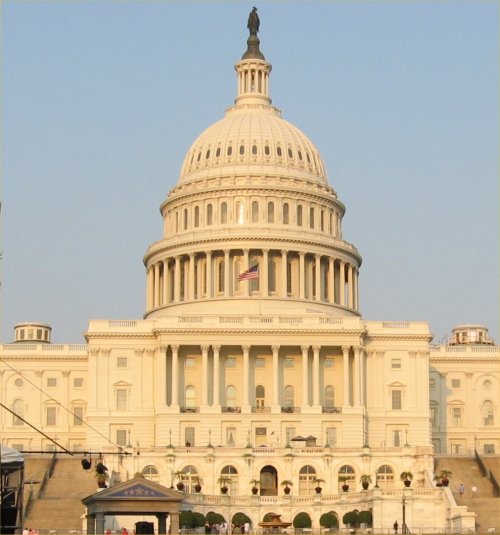
|
The National Memorial Day Concert |
Pops Library
Bio
Guitarist
Arranger
Conductor
Coco
Listen
Gallery
Fun Stuff
Contact
The National Memorial Day Concert was broadcast live on PBS, Sunday, May 27, 2007 at 8:00 PM. The concert, performed on the lawn of the Capitol Building in Washington, D.C., honored fallen and wounded soldiers, and it featured the National Philharmonic Orchestra, Natalie Cole, Jane Monheit, Josh Turner, CeCe Winans, Bonnie Hunt, Joe Mantegna, Gary Sinise, Jimmy Smits, Diane Wiest, Colin Powell, the Joint Chiefs of Staff, and many others. Erich Kunzel conducted the concert.
I had the good fortune to be hired to play guitar for the show.
The call came only 2 weeks prior to the concert, when Maestro Kunzel started a conversation by saying "Whatever you're doing on Memorial Day, cancel it."
Marc Wolfley, the drummer for the Cincinnati Pops, and I were soon contacted by the producers of the
National Memorial Day Concert and travel arrangements were made.
We arrived on Thursday evening for the Friday morning rehearsal at the Kennedy Center. (I'm going to just type "Kennedy Center" again because I like how it sounds.) Friday morning's rehearsal at the Kennedy Center made me a bit nervous, as much of the music was not sent out ahead of time, so I didn't get a chance to see and practice it before the rehearsal. At the Kennedy Center.
I brought 2 of my own guitars on the plane with me and they rented 2 additional guitars, an amplifier, and miscellaneous support gear.
When the "backline" guy arrived, the stage crew came out to the loading dock and I selected instruments, stands, pedals, patch cords, etc. from a truck full of gear, and then the stage crew picked it up, carried it in and set it up for me.
I laughed at the situation - being at the Kennedy Center, while my rental equipment is carried in and set up by stage hands, when just the week before I was hauling my own gear down the street from the parking lot to a $75 gig back home in Dayton, Ohio.
I could get used to this sort of treatment. Did I mention where this was yet?
The rehearsal went smoothly and Marc and I spent the afternoon wandering among the monuments and museums of Washington, D.C. I always feel like Gomer Pyle when visiting Washington, go-ooo-ooo-leee-ing my way past the life-sized postcards that fill our nation’s capital.
The Smithsonian's exhibit on the lives of the Wright Brothers and their finest invention made me almost irrationally proud of Dayton.
The rehearsal that evening was on the lawn of the Capitol building, which is where the Senate and the House of Representatives meet. Our first view of the Capitol building from the stage was breathtaking, her grand white dome glowing gentle orange in the evening sun.
The orchestra sat facing the Capitol, the dome's geometric perfection dominating our view of the world throughout the rehearsals and performance.
The meaning and the magnitude of the event struck me during this rehearsal, as the show unfolded, and we heard the text and saw the images for the first time added to the orchestra's music.
The show memorialized fallen and wounded soldiers in a dignified, respectful, and at times deeply personal way.
For many, it was emotionally devastating. Comments about the show included "You didn't prepare me for how much of a tearjerker that would be," and "It made me want to go hug my son."
Saturday was an all day rehearsal. We left the hotel at 9:30 AM and arrived back at 9:45 PM.
During the day, the rhythm section played the show's music again and again for each performer as the TV people worked out the details of how to capture the performance for the screen.
In the middle of the day, the stage had to be cleared so it could be swept for bombs.
Trained police dogs, with cop badges hanging down from their collars, sniffed every inch of the area.
That evening, we had a dress rehearsal.
The concert was broadcast on PBS on Sunday at 8:00 PM, even though a thunderstorm
drenched the entire city about 7:00 PM, and was still drenching at
showtime. The show must go on,
so -- storm or no storm -- the concert started precisely at 8:00, a light rain still falling.
The show proceeded smoothly. The stage and TV crew of 100+ worked like bees in a hive to make it all appear effortless on TV.
In one scene change, 16 stagehands raced on stage, Indy 500 pit-crew style, to remove the elaborate set for Josh Turner's band in 30 seconds.
Then there were the nervous people wearing headsets. They must have been in charge because they were so very nervous and they barked commands that made the stagehands jump.
It made me wonder if wearing a headset caused nervousness, or whether they only give headsets to nervous people.
I played on five pieces during the show, two with Natalie Cole, one with Jane Monheit,
one with Ce Ce Winan, and
one with the National Symphony Orchestra, who played my arrangement of "Tears in Heaven."
Officers on the roof of the Capitol building, armed with binoculars and rifles (at least) kept watch over the crowd.
The need for all the security was apparent, as the front rows of the audience were filled with faces recognizable from television news shows: generals, congressmen, senators, admirals, and other
officials from the government.
The stories portrayed by the actors in the program were heart wrenching. One story told of a mother whose son died in Iraq 2 months prior.
She visits his grave in Arlington every Sunday and writes letters to him as she sits there.
Diane Wiest's reading of one of this mother's letters to her fallen son reached right into your gut, grabbed a handful of your insides, and squeezed.
The mother Ms. Wiest was portraying sat in the front row of the audience, wiping her eyes with tissue, her shoulders bobbing gently in the unmistakable rhythm of sobbing.
Time passed deliberately as the show -- 90 minutes mapped to the second for TV -- followed its script. The audience applauded, cried, smiled, cringed, cheered…..and then it was over, and we were back at the hotel bar, having a beer and talking.
Several of the celebrities came to the bar, which was filled with crew members, musicians, actors, wardrobe people, drivers, interns, dancers, producers, arrangers, camera operators, even one of the soldiers and his wife who were in the TV show. There was a warm glow among everyone gathered there that night.
For me, participating in a concert to memorialize our nation's soldiers in front of the Capitol building was an honor. Memorializing the men and women who sacrificed so much defending my country just felt right.
My one regret for the weekend was that I did not get to shake Colin Powell’s hand. I have admired him for years and I wanted to shake his hand and ask him to run for president.
When he left the stage after his sound check Sunday before the show, I quickly tried to follow him back stage, but he disappeared into a sea of brass – the generals and admirals of the Joint Chiefs of Staff – and I stopped cold.
Not even I have that much nerve. It occurred to me later that I likely was under the watchful eye of one of the men on the roof of the Capitol when I walked straight toward Colin Powell like that.
Not prudent.
The next day I came home and went back to being the guy who carries his own gear to the gig.
I hope I have the good fortune to play this concert again some day.
Update:
May 26, 2009
Good
fortune has visited me twice since this essay was originally posted.
I just
returned from Washington D.C., after performing in the 2009 National
Memorial Day Concert. This
year’s show was the most moving of the three that I have performed in.
I was
invited to the after party in the Capitol Rotunda.
It was packed with senators, congressmen, celebrities – all
manner of important people, the most important of whom were the wounded
soldiers from Walter Reed Hospital.
I spoke with many of them and was struck by how down-to-earth they
seemed.
One fellow
had been hit behind the ear while in Iraq.
The bullet tore out his jaw and nose.
He had the most gentle eyes I have ever seen.
Others were in wheelchairs or on crutches.
They were interested in meeting the celebrities and the celebs were
eager to talk with and pose for pictures with the soldiers.
I saw one soldier hand his cell phone to Trace Adkins, giving a
country music fan back home quite a thrill.
One soldier
was the most magnificent specimen I have ever seen.
He was a large, powerful man, wearing a dress uniform with a
special forces insignia, and a chest full of medals, one of which was a
Silver Star. He
stood tall and proud, a real-life superhero and I felt humbled by his
presence. I
walked up to him and thanked him for his service and a warm smile spread
across his face. “You’re
most welcome, sir,” he replied.
I felt even more humbled by this exchange with him.
It changes
you to see wounded soldiers face-to-face, to meet the people who signed the blank
check to Uncle Sam and then paid the price with their own flesh.
It changes you.
© 2002 - 2023, Tim Berens
All rights reserved
